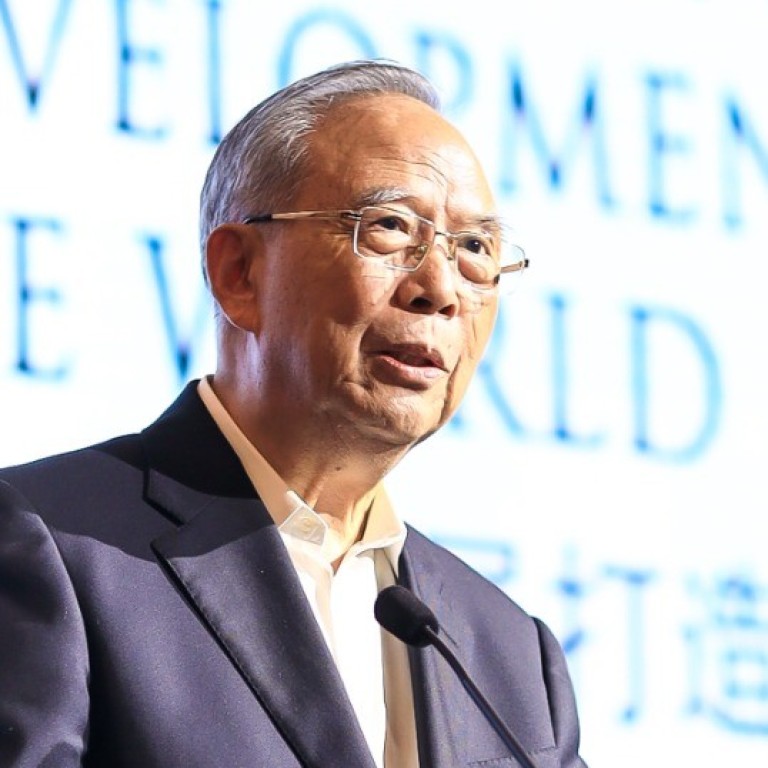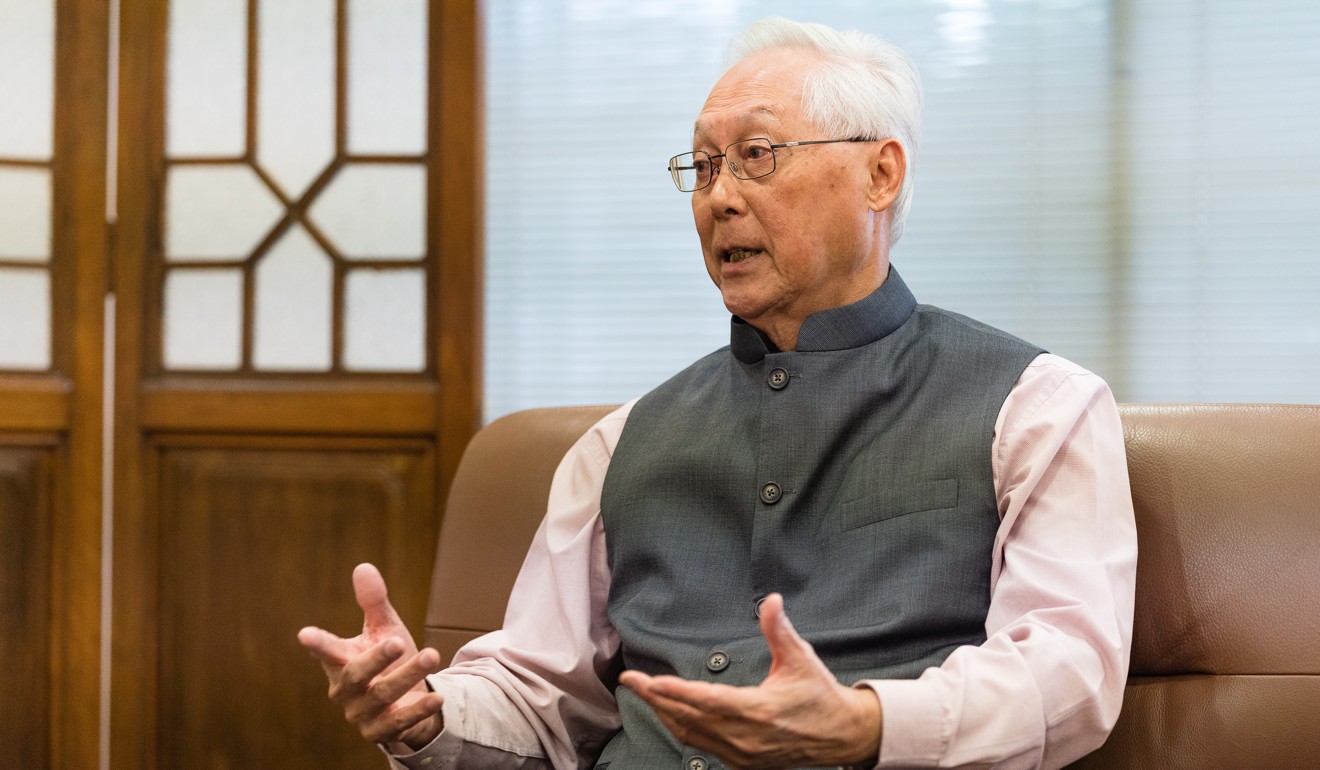
‘Disaster’ if US and China decouple, says former vice-premier Zeng Peiyan
- Speaking at a conference in Singapore, Zeng says Beijing and Washington need to work hand in hand to develop the digital economy
- The event also saw Singapore’s former prime minister Goh Chok Tong call for Asian countries to band together as a bulwark against the bitter tariff war
That was the warning from China’s former vice-premier Zeng Peiyan, as he addressed a regional conference in Singapore on Wednesday.
“China and the US need to work hand in hand to provide the world more public goods rather than exit or even damage the existing system,” he said.
China ill-prepared for disruptions to global economy: new report
He said the US and China should see bilateral relations with a “rational and objective angle”, adding that he expected the US would “play a positive role, rather than focus on decoupling”.
“Both countries have their own development goals, but that does not mean it is a zero-sum game. Instead, both countries can [complement and reinforce] each other,” Zeng said.
Citing US expertise in scientific innovation and Chinese expertise in data and digital equipment manufacturing, Zeng said the two countries had a platform for cooperation on the digital economy in areas such as artificial intelligence and big data.
He said the countries “have never been presented with more areas in which they can and should cooperate”.
“China and the US should actively expand new areas of cooperation such as agriculture, energy and resources, medical care and health and infrastructure,” Zeng added. “Strengthened cooperation in science and technology serves [their] common interests.”
On the flip side, were the Chinese and American economies to decouple, it would be a “disaster” not only for the two countries, but for the world, he said.
Mahathir fears Malaysia will be target of sanctions amid trade war
Zeng’s comments were in line with a warning by the Chinese state-run newspaper People’s Daily that prolonging the trade war would lead to a “lose-lose situation”.
His speech came after the 13th round of trade negotiations between China and the US this month – talks Zeng described as “substantive”.
The Office of the US Trade Representative had said on Friday that trade officials from both sides were “close to finalising” some parts of an agreement after high-level telephone discussions, though it did not provide further details about the “phase one” deal.

He said trade-reliant Singapore, like many nations, was a price-taker rather than a price-setter, and that to survive the trade tensions, the Lion City could not just be a “silent bystander”.
Goh, who led the city state from 1990 to 2004, pushed for a stronger Asian voice in discussions surrounding international trade by building up trust among regional partners.
US, China set on ‘decoupling’ amid their clash of civilisations, forum told
“I am advocating for Asia to band more closely together and find its own common cause of working for peace and prosperity before we can urge both China and the US to find their common cause,” he said.
“There are two possible futures for the world today. One path leads to deglobalisation and decoupling. The other leads to detente and development.”
The two-day conference was organised by the Washington-based think tank Brookings Institution, the China Centre for International Economic Exchanges, and the National University of Singapore’s Lee Kuan Yew School of Public Policy.
It included speeches by Surakiart Sathirathai, the deputy prime minister of Thailand from 2005 to 2006, while Indonesia’s former trade minister Mari Pangestu will be part of a panel discussion.

